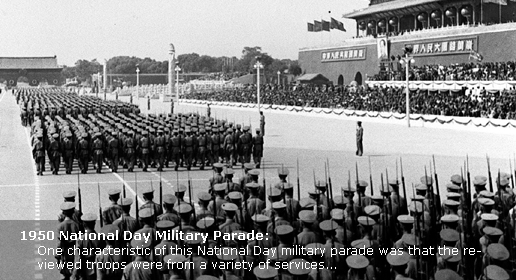60 People, 60 Stories
Right direction
By Raymond Zhou (China Daily)
Updated: 2009-09-30 09:01
|
 Chinese film director Zhang Yibai is ready to ride the industry's boom. [China Daily]
|
| ||||
Zhang Yibai prefers to call it "the light at the end of the tunnel".
The Chinese director made his film debut with Spring Subway in 2002, the same year compatriot Zhang Yimou's Hero raked in 250 million yuan to top the box office.
Hero was considered the first "blockbuster" produced by the industry on the Chinese mainland, even though the talent involved in the martial arts extravaganza also hailed from other regions such as Hong Kong.
 The industry went on to make 1 billion yuan in 2003, with an average growth rate of 34 percent for each year, before hitting 4.3 billion yuan for last year.
The industry went on to make 1 billion yuan in 2003, with an average growth rate of 34 percent for each year, before hitting 4.3 billion yuan for last year.
Many say Chinese cinema is rebounding from the worst malaise in its history - from the mid-1980s all the way to the dawn of the new millennium - that was brought about by the surging penetration of television, rampant piracy and, above all, the dearth of competitive products from the nation's film industry.
Zhang Yibai, having tasted the sweet success of commercials, music videos and television series, chose the inevitable path to filmdom.
His movies were not runaway hits, to say the least, but they exude a cosmopolitan flair and gloss rare among filmmakers of his generation.
Zhang's current role is somewhat like Steven Spielberg. He directs and produces.
"Look at what China's film industry lacks now. It does not lack money. It lacks good content. Specifically, it lacks professionals who can manage this content," he says.
Zhang's forays differ from the offerings in the first three decades of New China, when filmmaking was totally State-controlled.
A filmmaker operated as a government employee and did not need to worry about distribution or the market.
The past few decades have been a constant flux, with more market mechanisms experimented with and adopted.
Although no one dreamed of recovering the revenues of 27.9 billion yuan in 1979, the industry is entering a golden age in terms of monetary value.
Last year, 1.56 new screens were added to the inventory every day.
"That's a reflection of growing demand," Zhang Yibai says.
"One must know that the box-office growth we have achieved in recent years stems from a handful of large coastal cities," he says.
"Now multiplexes are finding their way into second- and third-tier cities, places where moviegoing has vanished for almost a generation. Imagine the explosion that will come in the next decade."
That is also why 34 percent growth is still "light at the end of the tunnel".
Han Sanping, chairman of China Film Group, the largest State-owned film corporation, recently predicted that total box office takings would reach 30 billion yuan in 10 years.
By that time, Zhang says China will no longer have a handful of moneymaking filmmakers.
"That club will grow to at least 10," he says.
"And I hope to be one of its mem-bers."
Time line
1947-1949
A golden age is born following the end of World War II. Amid the ongoing civil war, political melodramatic masterpieces, such as The Spring River Flows East (1947), Spring in a Small Town (1948) and Crows and Sparrows (1949) are made.
1949-1952
The film industry is nationalized. Most pre-194910 films and foreign productions are banned from 1951.
1964
China's first feature animation Uproar in Heaven made.
1966
Between 1949 and this year - what is known as the "17 years" of Chinese cinema - 603 films and 8,342 reels of documentaries and newsreels are produced. But soon after the "cultural revolution" (1966-76) breaks out, most previous films are banned.
1970-1976
Dozens of revolutionary films - most between 1974 and 1976 - and eight model plays are produced under the strict political and technical instructions of the "Gang of Four".
1988
Red Sorghum by Zhang Yimou wins the Golden Bear, pointing to a new direction for Chinese filmmakers to gain international recognition.
1994
A quota of 10 imported films effectively resuscitates a moribund industry with such hits as The Fugitive and Terminator 2.
2002
Major cinema chains roll out.
2007
Attendance at movie theaters climbs back past the 100-million-viewer mark, reaching 103 million.
2009
Transformers 2 breaks the nation's box office record, earning 400 million yuan.









